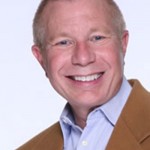If it doesn’t rain Sunday, or God forbid snow, or if the spring day isn’t too pretty, or if some other excuse doesn’t present itself, you might go to church. If your pastor follows the common lectionary then, like us, they will preach on the story about healing the man born blind. Yesterday I talked about how hard it is to get past the second verse where the disciples want to debate who sinned that the man was blind.
The theology of affixing blame seems rooted in the psychology of the religious and the atheist. Even when we loudly pronounce ourselves innocent, when something goes wrong in our lives we still secretly wonder, deep down inside, why we are being punished.
I suppose that Capitalism really is the universal religion. You get what you pay for, or you must pay for what you get. So, because this man was blind, the disciples ask Jesus who sinned, he or his parents? This is an interesting question because the man was born blind. Did they believe that he was pre-emptively punished? We have mostly abandoned the idea that children are punished for their parent’s sin.
Still, how would we feel about the disciples’ questions if we knew that the man’s blindness had been the result of drug abuse? What if we knew that his father had given his mother a sexually-transmitted disease that caused the blindness at birth? Given different information, we might feel differently about the blind man’s situation.
Jesus assures them that neither the man nor his parents sinned. Jesus then proceeds to heal the man as a way of bringing glory to God … which is the lesson I wish Christians would take away from the story. President Reagan popularized the racially loaded term “welfare queen,” and, since that time, people have been debating and scrutinizing whether or not people deserve our help. While we do not wish to become enablers for people with unhealthy patterns of behavior, we do need to spend at least as much energy actually assisting those in obvious need. The man was BLIND. People sleeping under bridges are cold. Children going to school without breakfast are hungry. People working minimum wage jobs are impoverished.
There is really no need for us to debate the few that MIGHT take advantage of the system, because there are enough people who obviously need help/healing. If we have any claim to be the “Body of Christ” then, like Christ, that is where we must focus our passion and energy.
by Michael Piazza
Center for Progressive Renewal











